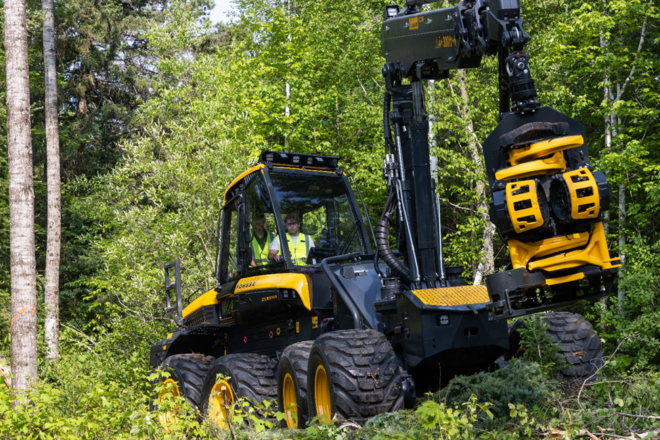Main Street Business Challenges & Concerns

Privately owned businesses, commonly referred to as main street or pass-through businesses (LLC, S-Corps, Sole Proprietorships), are drivers of the U.S. economy. These businesses make up 90 percent of the establishments and account for 60 percent of the employees in the U.S. The concentration of businesses and employment is spread across the U.S. but highly concentrated in rural communities away from metropolitan areas. These businesses’ names are the ones you’ll see on billboards that line the fences at sporting venues and sponsor local events across rural communities in America.
Main street businesses are vital to the forest products industry’s healthy wood supply chain. Most logging and log hauling companies fit into this category and are essential to providing consuming mills with the raw forest materials needed to manufacture products. Small businesses also supply the many goods and services required to run a paper/pulp mill, sawmill, or engineered wood products facility efficiently. Main street businesses supply fuel to run equipment, sharpen chipping blades, deliver and manufacture essential parts to support operations, and provide facility maintenance and consultation services.
FRA recently participated in an event hosted by the National Federation of Independent Businesses (NFIB). The event focused on the top concerns that small businesses are currently facing. A panel of small business owners expressed concerns over growing uncertainty in managing their business successfully. They cited increased regulations, uncertain tax policies, cost of supplies, and the ability to recruit skilled labor.
A survey conducted by the NFIB shows that small businesses’ priorities and problems have changed since 2016. The cost of health insurance stayed the number one concern of small businesses, just as it was in 2016. Finding qualified employees and keeping skilled employees ranked second (10th in 2016) and fifth (14th in 2016) as top concerns, respectively. Other concerns in the top five included federal and rapidly increasing property prices. Federal business income taxes were reported as the largest financial burden, with 77 percent of small businesses saying these taxes are very/moderately burdensome.
For the first time since the late 1970s and 1980s, inflation was the greatest concern compared to taxes and regulations, with taxes being the number one concern since 1982. The rapid increase in inflation and supply chain costs has created uncertainty in delivering projects on time and on cost. These rapid cost increases are often not passed on to customers and eat away at profits – profits that are used to reinvest in the company and support wage increases and benefits to employees.
When asked what could benefit the small businesses, one business owner said, “We are looking for long-term certainty of regulations and tax policy.” Another business owner said that “as l long as the Build Back Better plan taxes are still in play, I can’t make decisions to reinvest in my employees or business.” The BBB tax proposals disproportionately negatively impact small businesses when compared to publicly traded companies. Combined with inflation and an increase in tax rates, many small businesses may struggle to keep the level of service they currently provide.



